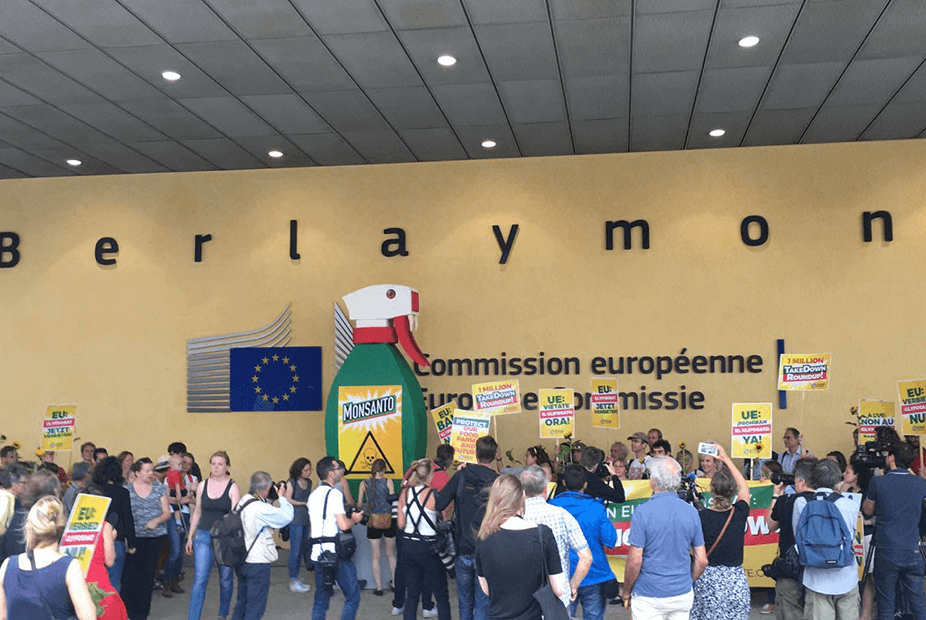Protecting Our Food
December 14, 2018
By WeMove Europe
Europeans should not be exposed to harmful pesticides.
WeMove Europe has campaigned to get the toxic weed killer glyphosate out of our food and fields since autumn 2015. That’s the same year the International Agency for Research on Cancer, a part of the World Health Organisation declared glyphosate is “probably carcinogenic.”
The use of glyphosate was trending upwards and worse, glyphosate’s manufacturers applied for a new licence to sell their toxic product in Europe for another 15 years.
WeMove Europe joined an alliance of mainly environmental organisations that had been working on the issue for some time. Together, we decided to launch a European Citizens' Initiative – a direct democracy tool that people can use to call on the Commission to propose or change laws. We called for glyphosate not to be approved again. We also demanded the approval procedure for pesticides in Europe be improved. Specifically, we identified the importance of allowing all parties access to all the data that manufacturers have to submit. This would allow proper, objective scrutiny and oversight.
The campaign was an example of the power of a wide-ranging movement comprised of different organisations bringing varied skills and expertise, as well as more than a million individual Europeans.
Scientists verified the risks and carcinogenic effects of glyphosate. Partner organisations with policy expertise shared this freely, providing the detail and clout required to make robust arguments. Members of the European Parliament that supported our aims explained the complex decision-making processes and relayed the latest developments.
Together, the alliance decided to launch a European Citizens’ Initiative. It proved a record-breaking success, collecting the required one million signatures in less than six months.
WeMove Europe, as a citizens' movement, played the central coordinating role for the ECI. It was a huge learning curve, but we rose to the challenges. We organised and connected partners and took responsibility for fundraising and technology.
And of course, we mobilised more than a million citizens to sign and organised repeated actions. The highlight was a Europe-wide day of action, during which over 100,000 paper signatures were collected at thousands of locations.
While the campaign didn't achieve its primary aim of prohibiting glyphosate in the EU, we were able to increase scrutiny. Glyphosate was permitted to enter the market again, but only for five years, not the fifteen years requested by the manufacturers and approved by the EU.
However, perhaps even more significantly for the long term, the approval procedure for environmental toxins and food additives is being changed to meet our campaign demands for transparency. In direct response to our ECI, the Commission proposed legislation to increase transparency in the approval procedure, which was approved in April 2019 by the full plenary of the European Parliament.



